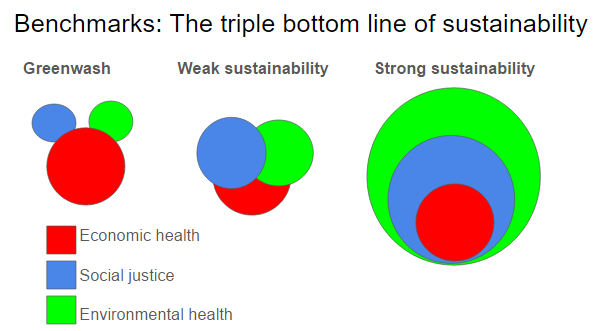One of the dilemmas of those advocating a more sustainable lifestyle is about how radical the change should be.
Is it enough to buy sustainably? Will the buying habits of individuals have a positive impact on the Doomsday clock?
The view of experts such as Dr Sylvia Lorek is that legislation on the issue of plastics, fuel, waste treatment and many other issues is needed in addition to personal lifestyle changes. The evidence is that spontaneous personal lifestyle changes have little effect.
Where does this leave teachers of vocational skills?
They should be preparing their students to meet the current legislative framework certainly.
They could encourage their students to speculate about the future legislative framework. Business hates nothing more than having to be reactive. So a future-oriented approach could result in businesses implementing sustainable strategies at a pace and in the manner of their choosing rather than being forced by unexpected legislation.
In Bonn, Lorek showed us a very interesting model of sustainability. The first stage was dubbed the Micky Mouse stage because the inclusion of social justice and environmental sustainability to economic viability is a weak add-on, with the economic bottom line remaining the main driver for action.
Weak sustainability is when all three aspects are given equal ranking while deep sustainability is when action recognises that a healthy business can only thrive within a healthy social justice system which in turn can only survive within a healthy biological environment.

As the model unfolded, I began to wonder if we could recommend this as an assessment benchmark for our target group of vocational trainers.
I could imagine that a project turned in by students could be assessed on which stage the solution had reached, with the most coveted being deep green.
According to Lorek, the journey from weak green to deep green is often one about exploring values so this implies that the transition from weak green to deep green cannot be purely technical but requires that learners take a good look at their values before examining how these could be translated into action in the workplace.
Reference
Lorek, S. (2010). Towards Strong Sustainable Consumption Governance. Saarbrücken: LAP Publishing.
